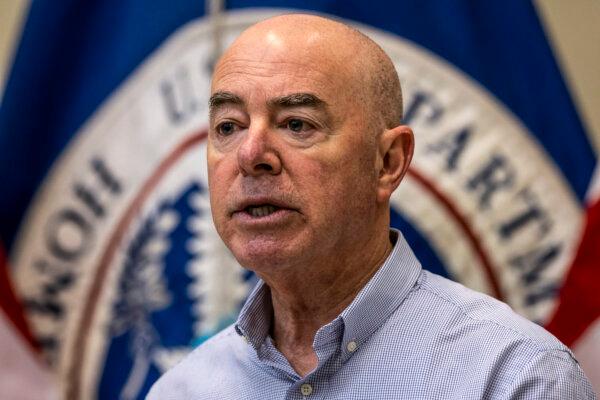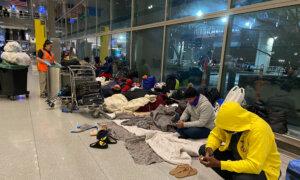A district court had halted two Homeland Security policies after they were challenged by Florida.
A panel of judges in the U.S. Court of Appeals for the 11th Circuit peppered government attorneys with questions as they debated a Biden administration policy of releasing illegal immigrants after encountering them at the southern border.
“Both of these memoranda were reasonable and reasonably explained, and fully consistent with the explicitly discretionary terms of the parole statute,” Mr. Darrow said during oral argument. “The district court erred … most notably in holding that these memoranda were contrary to law.”
DHS issued memos on Parole+ATD in November of 2021 and July of 2022. The latter, the district court said, violated immigration law because it was too broad in its application.
Mr. Darrow argued that Judge Wetherwell misread the statute: “The district court’s main issue with the violation of the urgent humanitarian reason clause was the number of non-citizens who were paroled under these memoranda.
“But the statute does not say that groups cannot share urgent humanitarian reasons or significant public benefit. And the language ‘significant public benefit’ itself seems to implicate a broader public than just an individual whose benefit is being considered. Holding otherwise would contravene decades of practice by the Department of Homeland Security that’s been actively ratified by Congress, who routinely passes bills to provide benefits and paths to lawful status for groups of non-citizens who’ve been paroled in sharing a common justification for parole, including Ukrainians, Afghani nationals, Polish and Hungarian nationals.”
Judge Britt Grant signaled that she didn’t believe the agency had acted under congressional authority: “You’re saying that Congress has in some way implicitly affirmed the policies that are going on right now regarding immigration. I find that a tough contention.”
Mr. Darrow responded that Congress didn’t speak specifically to USBP’s policies but did indicate support through programs offering parole for Ukrainians fleeing the war with Russia.
Standing
Much of the oral argument focused on whether the state of Florida had standing to sue the federal government over its policies.
Florida maintained that it had standing because DHS data showed that the Parole+ATD policy led to illegal immigrants being released in the state.
“Between November 2021 and July 2022 alone, around 80,000 inadmissible aliens released under Parole+ATD ended up in Florida,” one of Florida’s legal briefs reads. It adds that around the same time, “the population of immigrant students in Florida public schools increased by 17,000, straining education resources and ultimately requiring additional expenditures.”

The court and attorneys debated over whether Florida showed an injury needed for standing if it didn’t have exact numbers on how many of those 17,000 resulted from the Parole+ATD policy.
“Without anything more concrete, saying at least some portion of the 17,000 are attributable to the Parole[+]ATD program, we’re just in the land of speculation,” Mr. Darrow said.
During his argument, Florida attorney James Percival acknowledged that the state needed a “concrete and particularized injury” but indicated he didn’t think it was “unreasonable” to determine the state had standing when faced with the 80,000 figure.
The district court’s opinion, meanwhile, focused on the fact that “well over 100,000 aliens have been released into Florida under the policies, and the state has incurred substantial costs in providing public services to aliens.”
Mr. Darrow argued that while the district court found 100,000 were released while those policies were in effect, it didn’t specify how many were released because of Parole+ATD.
Original News Source Link – Epoch Times
Running For Office? Conservative Campaign Consulting – Election Day Strategies!


